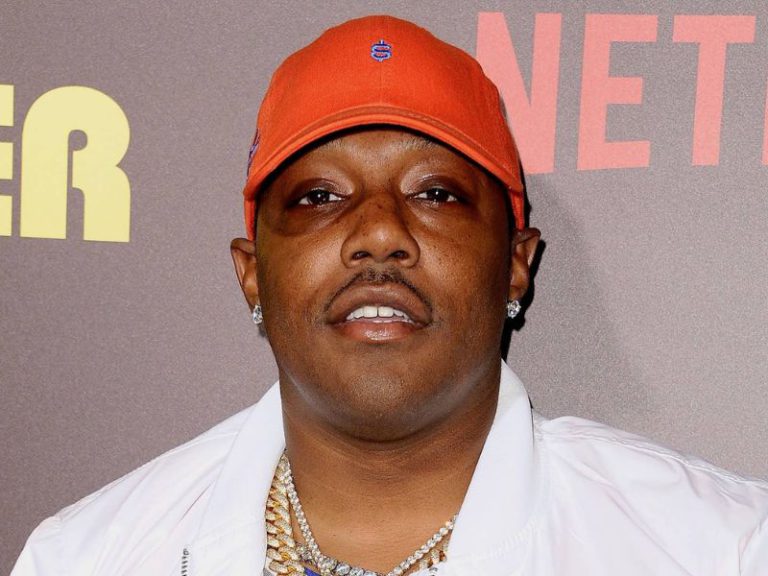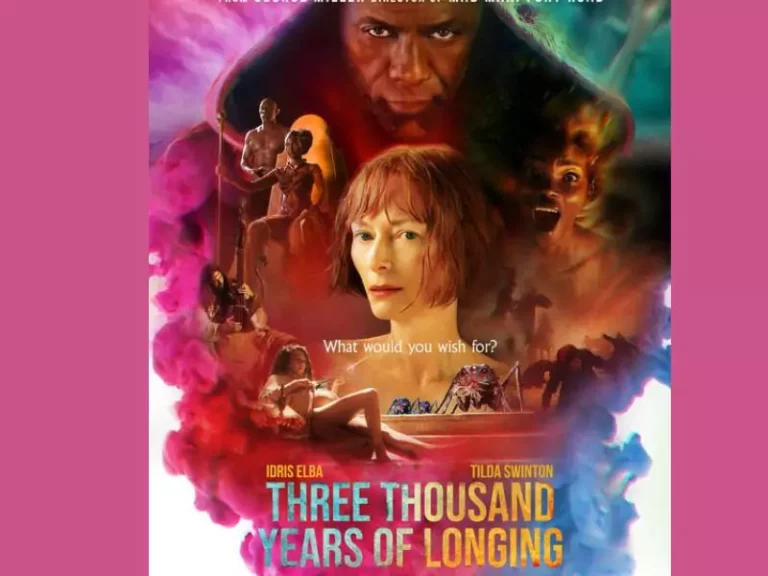
Blade Runner 2049, the critically acclaimed science fiction film directed by Denis Villeneuve, has captivated audiences with its profound storytelling and compelling characters.
Within this cinematic masterpiece are ten quotes that encapsulate the film’s themes and leave a lasting impact on viewers. From moments of self-discovery to profound realizations about the nature of humanity, these quotes offer insight into the complexities of the human experience in a world dominated by artificial intelligence.
This article aims to explore and highlight these ten best Blade Runner 2049 quotes that are essential for any fan of the film. Join us as we delve into the thought-provoking and memorable lines that make Blade Runner 2049 an unforgettable cinematic journey.
K’s Shocking Discovery
K’s shocking discovery, which occurs midway through the film, is a pivotal moment that significantly alters the course of Blade Runner 2049. As a replicant Blade Runner, K initially believes that he is a manufactured being with implanted memories. However, during an investigation, he stumbles upon evidence that suggests he may be the child of famed replicant Rachel and human Blade Runner Rick Deckard. This revelation shakes K to his core, challenging his understanding of his own identity and purpose.
The impact of this discovery is profound, not only for K but also for the larger narrative of the film. It sets in motion a chain of events that leads K on a journey of self-discovery and forces him to question the nature of humanity. It also brings him face-to-face with Deckard, who may hold the key to unlocking the truth about K’s origins.
Furthermore, K’s shocking discovery serves as a catalyst for exploring deeper themes of identity, memory, and the blurred lines between human and artificial beings. It raises thought-provoking questions about what it means to be human and challenges traditional notions of what constitutes a soul.

K’s Emotional Moment With Deckard
During a pivotal scene in Blade Runner 2049, the emotional moment between K and Deckard showcases the profound impact of their connection. As K pleads with Deckard to go meet his daughter, the audience witnesses the raw vulnerability and desperation in K’s voice.
This scene not only highlights K’s deep longing for a familial bond, but it also reveals the complexity of his journey to uncover his true identity. Throughout the film, K grapples with his manufactured existence and yearns for a sense of purpose and belonging.
His emotional plea to Deckard reflects his ultimate desire to find meaning and connection in a world that often rejects and marginalizes replicants. Moreover, this moment emphasizes the theme of humanity in the film, as K, an artificial being, demonstrates a depth of emotion and compassion that surpasses traditional notions of what it means to be human.
Ultimately, K’s emotional moment with Deckard serves as a poignant reminder of the power of human connection and the universal longing for love and belonging.
Deckard’s Unexpected Change of Mood
Deckard’s unexpected change of mood in Blade Runner 2049 is a noteworthy moment that showcases the complexity of his character. Throughout the film, Deckard is portrayed as a brooding and somewhat detached individual, but there is a scene that deviates from this established persona.
During a fight, Deckard unexpectedly expresses his appreciation for a song playing in the background. This momentary shift in his demeanor adds depth to his character and hints at a hidden emotional side.
The sudden change in Deckard’s mood is surprising because it contradicts the stoic and hardened image that has been built around him. It suggests that beneath his tough exterior, there is still a glimmer of vulnerability and a capacity for joy. This revelation challenges the audience’s perception of Deckard and adds an additional layer of complexity to his character.
Furthermore, Deckard’s unexpected change of mood also serves as a reminder that even in a dystopian world, moments of beauty and pleasure can still be found. It highlights the power of music to evoke emotions and create connections between individuals. In this particular scene, the song momentarily transports Deckard from the harsh reality of his surroundings and allows him to experience a brief moment of respite.

Gaff’s Ironic Statement About Working Alone
In the dystopian world of Blade Runner 2049, Gaff’s ironic statement about working alone adds another layer of complexity to the theme of collaboration. Gaff, a character known for his enigmatic and cryptic nature, states, ‘He liked to work alone. So did I. So we worked together to keep it that way.’ This statement, dripping with irony, highlights the contradiction between the desire for solitude and the necessity of teamwork in achieving common goals.
Gaff’s words reflect the paradoxical nature of the film’s society, where individuals strive for independence and self-reliance, yet find themselves entangled in a web of interdependence. The idea of working alone, traditionally associated with strength and self-sufficiency, is subverted by Gaff’s admission that he and his counterpart collaborated to maintain their preferred working style.
Through this statement, the film explores the intricate balance between individualism and collectivism. It suggests that even in a world where isolation is valued, cooperation remains essential for survival. Gaff’s ironic statement serves as a reminder that collaboration and teamwork are often necessary, even for those who prefer to work alone. It challenges the audience to consider the complexities of human relationships and the compromises that are sometimes required in achieving shared objectives.
K’s Realization About His True Identity
After discovering his true memories, K experiences a profound realization about his true identity. Throughout the film, K believed he was a replicant, a manufactured being with no real past or personal history. However, as he delves deeper into his investigation, he begins to unravel the truth about himself.
It is during a confrontation with the enigmatic yet powerful Niander Wallace that K comes to understand the shocking revelation that he might actually be a human. This realization shakes him to his core and challenges everything he thought he knew about himself and his place in the world.
K’s journey of self-discovery and the acceptance of his true identity is one of the most compelling aspects of Blade Runner 2049. It raises profound questions about what it means to be human and the nature of personal identity.
K’s realization serves as a catalyst for his transformation and drives him to make choices that have far-reaching consequences.

Joi’s Contemplation on the Biology of Humanity
Joi’s contemplation on the biology of humanity offers a thought-provoking perspective on the nature of human existence in Blade Runner 2049.
In the film, Joi, an artificial intelligence companion, muses on the essence of being human, stating, ‘Mere data makes a man. A and C and T and G. The alphabet of you.’ This quote suggests that the fundamental biological building blocks of DNA are what define human beings. It raises profound questions about the role of genetics in shaping identity and the extent to which one’s biology determines their humanity.
Joi’s contemplation challenges the traditional notion of what it means to be human. It suggests that humanity is not solely defined by physical presence or subjective experiences, but rather by the genetic code that underlies our existence. This perspective invites viewers to consider the significance of biology in the concept of humanity and prompts reflection on the complex relationship between nature and nurture.
Furthermore, Joi’s contemplation highlights the film’s exploration of the blurred boundaries between artificial intelligence and human consciousness. It underscores the theme of identity and the potential for artificial beings to possess qualities traditionally associated with humanity.
Ultimately, Joi’s musings on the biology of humanity invite audiences to question the essence of human existence and the role that genetics plays in defining it.
Sapper Morton’s Perspective on Replicants and Miracles
Continuing the exploration of Blade Runner 2049’s themes, Sapper Morton offers a unique perspective on replicants and the concept of miracles.
In one of the film’s most memorable quotes, Sapper tells K, a replicant Blade Runner, ‘You newer models are happy scraping the s***. Because you’ve never seen a miracle.’ This statement encapsulates Sapper’s belief that replicants, being artificial beings, lack the capacity to appreciate the wonders of life.
To Sapper, who has experienced the beauty and complexity of the natural world, replicants are confined to a limited existence, devoid of the awe-inspiring moments that make life truly meaningful.
Sapper’s perspective challenges the notion that replicants are merely soulless machines. Instead, he suggests that their lack of exposure to miracles, or extraordinary occurrences, is what separates them from humans.
This raises profound questions about the nature of humanity and the role of experiences in shaping our understanding of the world. Sapper’s perspective also sheds light on the struggle for replicants to find their place in society and to transcend their manufactured origins.
K’s Reflection on the Significance of Birth
In the exploration of Blade Runner 2049’s themes, K offers a profound reflection on the significance of birth. Through his journey of self-discovery, K grapples with the question of what it means to be human and the role that birth plays in defining one’s existence.
In a pivotal moment, K states, ‘To be born is to have a soul, I guess.’ This simple yet profound statement encapsulates his realization that birth is not just the beginning of physical life, but also the catalyst for the development of a unique and individual soul. It suggests that birth is the moment when consciousness is sparked, and the potential for growth and self-awareness is ignited.
K’s reflection on the significance of birth challenges the notion that replicants, artificial beings created by humans, are devoid of a soul. It raises thought-provoking questions about the nature of identity, consciousness, and what it truly means to be alive.
Through K’s contemplation, Blade Runner 2049 delves into the complex relationship between birth, humanity, and the essence of being.

Joi’s Comment on K’s Appearance and Identity
Joi’s comment on K’s appearance and identity offers intriguing insights into his manufactured persona. When Joi says, ‘You look like a good Joe,’ she not only acknowledges K’s physical appearance but also highlights the constructed nature of his identity. As a holographic companion, Joi’s purpose is to provide companionship and fulfillment to K, who is a replicant. Her remark suggests that K’s appearance and identity are carefully crafted to conform to societal norms and expectations.
However, there is a deeper layer to Joi’s comment. By referring to K as a ‘good Joe,’ she implies that his identity is not unique or individualistic. Instead, it suggests that K is merely one of many replicants who share similar characteristics and qualities. This notion further reinforces the manufactured nature of his persona and raises questions about the extent of his autonomy and agency.
Additionally, Joi’s comment serves as a reflection of her own artificial existence. As an AI hologram, she is programmed to cater to K’s desires and preferences. Her statement not only underscores her role as a constructed companion but also highlights the limitations of her own identity.
Freysa’s Belief in the Humanity of Sacrifice
Freysa’s conviction in the profound humanity of selfless sacrifice is a defining aspect of her character in Blade Runner 2049. Throughout the film, Freysa, a leader of the Replicant Freedom Movement, firmly believes that sacrificing oneself for a greater cause is the epitome of what it means to be human. This belief is evident in her statement, ‘Dying for the right cause. It’s the most human thing we can do.’
In a world where replicants are treated as disposable commodities, Freysa’s perspective challenges the notion that humanity is defined solely by biological origins.
Freysa’s unwavering belief in the value of sacrifice serves as a driving force behind the Replicant Freedom Movement’s fight for equal rights and freedom. She believes that by sacrificing themselves for the cause, replicants can transcend their artificial origins and prove their worth as individuals deserving of autonomy and dignity. This belief is not only a reflection of Freysa’s own character but also an inspiration to those who follow her.
Freysa’s conviction in the humanity of sacrifice is a powerful and thought-provoking theme in Blade Runner 2049. It challenges the audience to question what it truly means to be human and whether selfless acts of sacrifice can transcend the boundaries of biology. Through Freysa’s character, the film raises important philosophical and ethical questions about the nature of humanity and the value of sacrifice in the pursuit of freedom and equality.
Emotional Moments of Connection
The emotional moments of connection in Blade Runner 2049 serve to enhance and reinforce the film’s exploration of humanity and sacrifice. These moments provide a glimpse into the characters’ inner struggles and desires, highlighting their longing for connection and meaning in a world devoid of genuine human relationships.
The poignant plea of K to Deckard, urging him to meet his daughter, reflects K’s yearning for a sense of purpose and family, while also showcasing his selflessness and willingness to sacrifice his own happiness for the greater good. Additionally, K’s contemplation on the significance of birth and his realization of his true identity further emphasize the film’s themes of humanity and the search for identity.
The emotional connection between K and Joi, as she recognizes her artificial nature and K’s manufactured identity, adds another layer of complexity to the exploration of humanity in the film. These emotional moments serve as powerful reminders of the characters’ shared humanity and the sacrifices they are willing to make for the sake of something greater than themselves.
Irony and Humor in Blade Runner 2049
While exploring the themes of humanity and sacrifice, Blade Runner 2049 also incorporates irony and humor into its narrative. These elements provide a refreshing and often thought-provoking contrast to the film’s darker themes.
One example of irony can be found in Gaff’s statement, ‘He liked to work alone. So did I. So we worked together to keep it that way.’ This statement highlights the irony of collaboration in a world where isolation is valued.
Another instance of irony arises when Sapper Morton remarks, ‘You newer models are happy scraping the s***. Because you’ve never seen a miracle.’ Here, the irony lies in the fact that replicants, artificial beings, are capable of appreciating the beauty and wonder of the world more than their human counterparts.
Additionally, Deckard’s unexpected comment, ‘I like this song,’ during a tense fight scene adds a touch of humor, momentarily lightening the mood.
Finally, Joi’s comment, ‘You look like a good Joe,’ serves as an ironic assessment of K’s appearance and manufactured identity.
These instances of irony and humor provide a welcome balance to the film’s introspective nature, creating a more engaging and multidimensional viewing experience.

Frequently Asked Questions
How Does K React to His Shocking Discovery?
Upon making a shocking discovery, K reacts with a visceral exclamation of “God damn it!” This emotional outburst reflects his profound response to uncovering his true memories and prompts a profound shift in his understanding of himself.
What Is the Significance of K’s Emotional Moment With Deckard?
The emotional moment between K and Deckard in Blade Runner 2049 holds significance as it represents K’s connection to his true identity and his desire for a meaningful relationship, highlighting themes of humanity and self-discovery.
Why Does Deckard Have an Unexpected Change of Mood During a Fight?
Deckard’s unexpected change of mood during a fight in Blade Runner 2049 could be attributed to his realization that there is still beauty and joy in the world, despite the darkness surrounding them.
What Is Ironic About Gaff’s Statement About Working Alone?
Gaff’s statement about working alone in Blade Runner 2049 is ironic because he claims to prefer solitude, yet he collaborates with others to maintain that solitude. This irony adds depth to his character.
How Does K Come to Realize His True Identity?
K comes to realize his true identity through a series of revelations and experiences. These include discovering his real memories, questioning his manufactured identity, and ultimately realizing that he is a replicant.
Conclusion
In conclusion, Blade Runner 2049 offers a compelling narrative filled with thought-provoking quotes that explore the themes of humanity, identity, and sacrifice. These quotes, ranging from moments of shock and emotion to instances of irony and humor, contribute to the film’s impact and resonate with audiences.
Through its memorable dialogue, Blade Runner 2049 reminds us of the complexity of the human experience in a world dominated by artificial intelligence.





